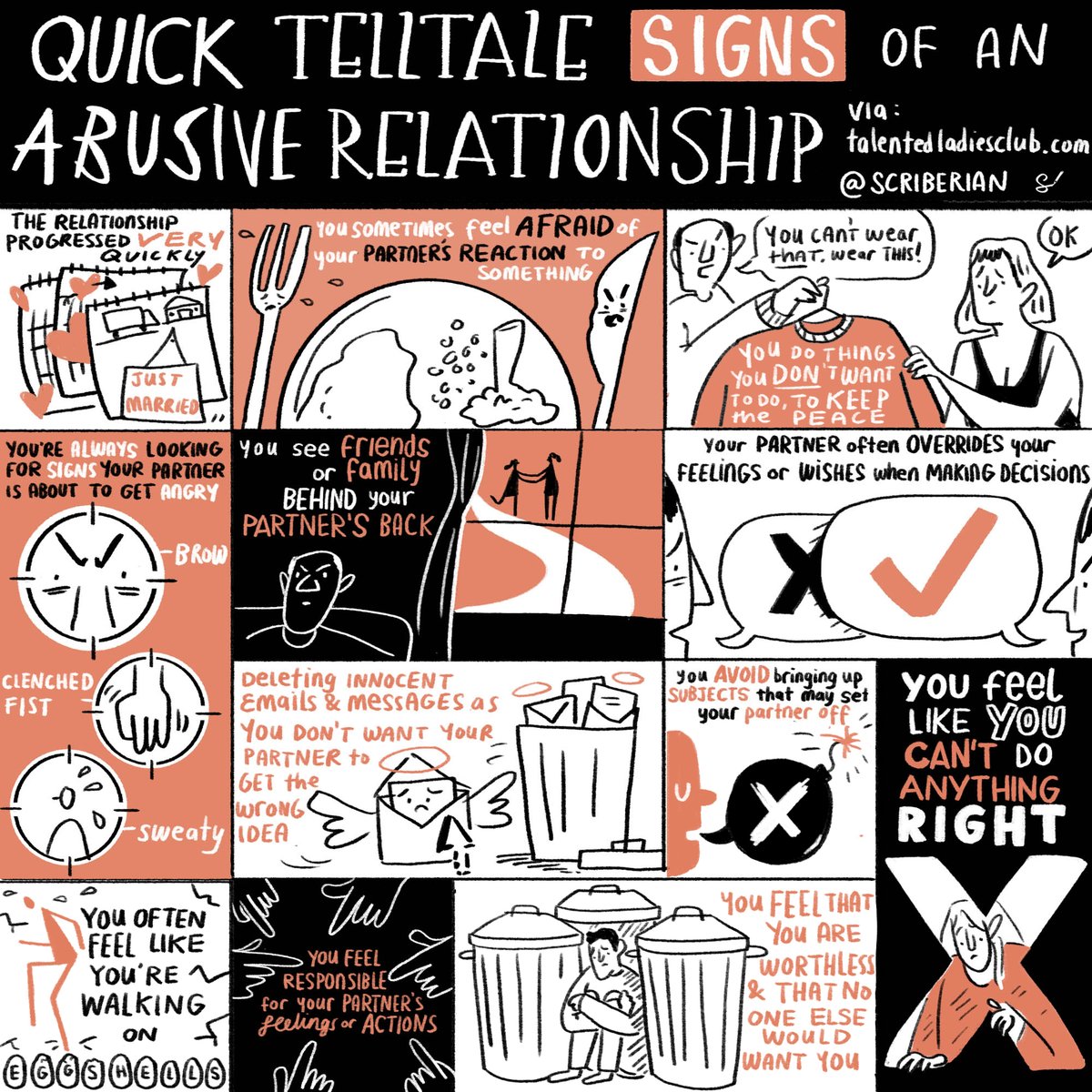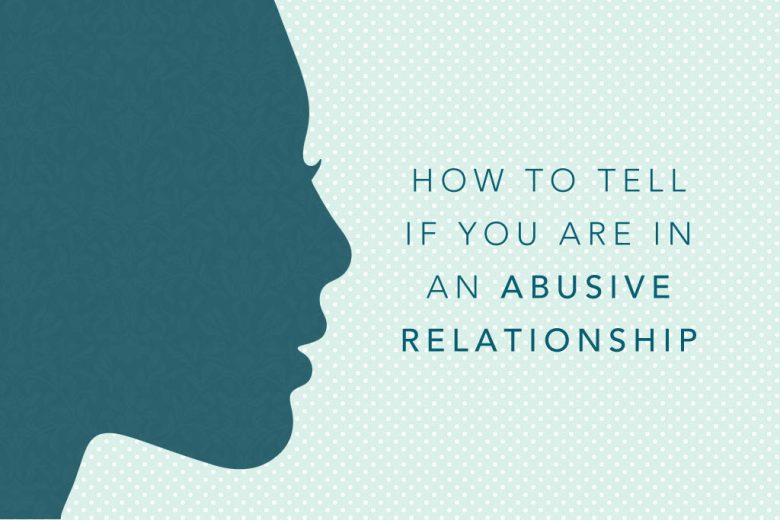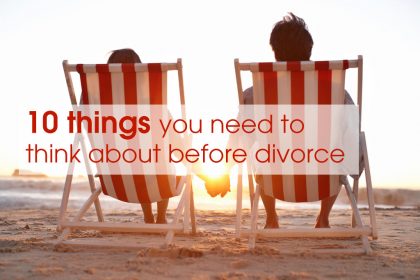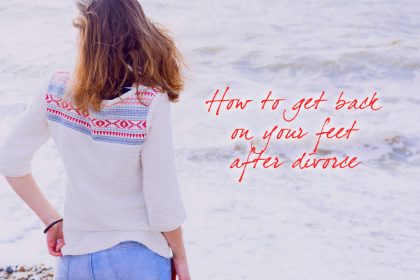How to spot the signs you’re in an abusive relationship – and what to do
Just because you are a strong, successful career or businesswoman doesn’t mean you may not be in an abusive relationship. Learn how to spot the signs and what to do.
When you read the phrase ‘abusive relationship’ what comes to mind? A broken woman cowering from a violent husband? A wife covering up bruises on her arms?
You may be surprised to learn that many abusive relationships don’t involve violence at all. And many partners of abusers can appear completely normal to the outside world. It’s also important to note that women are just as capable of inflicting abuse on their partners as men.
Abuse can take many forms
Abusive relationships can take many forms and are more common than many of us think. Your sister, brother, friend, colleague or even you yourself may be in an abusive relationship without even realising. If you have a child in an abusive relationship, you might want to take them to teen residential treatment to get counselling to help them move on.
In this article you can read more about abusers, learn to spot the warning signs of an abuser, and signs that you may be in an abusive relationship. You can also find out what to do if you suspect your partner is abusive. Whether they can change, how to leave your relationship, and how to recover and move on.
Abuse is about power
All relationships have their ups and downs. Most people can be selfish or even cruel at times, and may even have the odd out-of-character outburst if under extreme stress. But an abusive relationship is different.
An abuser has no empathy. They have no regard for the feelings of others and will ask and expect you and other people to do what they want, however unreasonable, to make them ‘happy’. (Although in reality no abuser is ever happy.)
Your partner doesn’t need to hit you (or even shout at you) to be abusive. They can abuse you in the way they speak to you, the expectations they place on you, the way they treat you. An abuser’s behaviour is consistent and relentless, and they will have no genuine remorse for the way they treat you, nor care whether or not you are happy.
Abuse is fundamentally about power. An abuser lacks self-confidence and self-esteem and seeks to control the world around them to gain a sense of power. And as their partner, you are the centre of that world.
Warning signs that your partner may be abusive
So how can you spot the signs of abuse? What do you need to look out for – not just in your own relationship, but those of the people you know and care about?
Here are just some of the things an abusive partner might do:
- Humiliate you or shout at you.
- Push for commitment quickly.
- Criticise you and put you down.
- Ignore or minimise your accomplishments.
- Blame you for their behaviour or mistakes.
- See you as their property.
- Ignore your feelings or wishes.
- Hold you responsible for their feelings.
- Have unreasonable expectations of you or your behaviour.
- Have unreasonable expectations of your children.
- Act in a jealous or possessive way.
- Find fault with your friends.
- Stop you from going out with colleagues.
- Discourage you from seeing your family.
- Restrict your access to money, your car or phone.
- Check your emails, phone or social media accounts.
- Keep track of your movements.
- Force you to have sex.
- Act recklessly with your joint finances.
- Force you to live outside your means.
- Keep tabs on your movements.
- Accuse you of having affairs.
- Threaten to take your children away from you.
- Threaten to harm your children.
- Use emotional blackmail.
- Threaten to harm you.
- Threaten to harm themselves.
- Destroy your home or things.
- Fly off the handle for no reason.
- Pick fights when you’re about to go out.
This list is by no means exhaustive, but it gives you an idea of the type of warning signs to look out for that someone may be abusive. (You can read more about the eight ways abusers brainwash you here – a highly recommended read.)

(Thanks to Scriberia for this image)
Signs that you may be in an abusive relationship
But what about you? Are there any signs in your own feelings or behaviour you can look out for that tell you your relationship is not good for you?
Some of the signs that you may be in an abusive relationship include:
- Feeling afraid of your partner sometimes.
- Keeping innocent things from them because you don’t want to cause a fight.
- Seeing friends or family behind their back because they’ll be angry if they know.
- Deleting innocent emails and messages because you don’t want them to get the wrong idea.
- Feeling like you’re walking on eggshells, never knowing what may set them off.
- Feeling that you’re responsible for their feelings or actions.
- Feeling like you can’t do anything right.
- Avoiding subjects that may set them off.
- Constantly looking for signs they’re about to get angry.
- Trying to manage the world around them to keep them happy.
- Feeling that you are worthless and that no one else would want you.
- Feeling like things that go wrong are all your fault.
Are you being subjected to gaslighting?
One common strategy abusers often use is gaslighting. When someone gaslights you, they make you doubt your own feelings, memory, instincts, and even your sanity. They’ll challenge what you say and think with an alternative ‘truth’. Some examples of gaslighting include:
- Denying something happened or that they said something
- Tell you that you’re crazy for thinking or feeling something
- Accuse you of deliberately making things up
- If you complain, they will make you believe YOU are in the wrong
- Claim they only did something bad because they loved or wanted to protect you
Narcissistic abusers particularly love to use gaslighting as an argument tactic, to ensure you can never win.
Can an abuser change their ways?
It can come as a shock to realise that your partner is abusive, and it can take a while to come to terms with and accept that you may be abused.
You may still love your partner, or feel tied in some way to your relationship (especially if you have children) and feel a duty or hope that you can find away to work through this situation together.
So what can you do? Can an abuser change their ways? Is it possible to ‘cure’ them?
In order for anyone to change, they need to recognise that their behaviour isn’t healthy and make the decision to change themselves. Being encouraged, pushed or forced to change by you or anyone else is very unlikely to work.
According to US abuse expert Dr Jill Murray, there are six criteria an abuser MUST meet if they stand a change of successful change. They need to:
- Understand that their behaviour is inappropriate and abusive.
- Not place blame for their behaviour on anyone else.
- Take full responsibility for their abusive behaviour.
- Have a genuine desire to change – not simply do it to stay out of trouble or because you have given them an ultimatum.
- Follow up their verbal promise to change with concrete actions.
- Maintain their new actions over a significant period – it’s easy to be contrite and moderate your behaviour for a few days, but true change is only evident after months of consistent new behaviour.
If your partner genuinely meets all six criteria, you may choose to consider remaining in your relationship (if you feel safe) – but it’s still a good idea to seek help for yourself too.
Few abusers do change
If your partner doesn’t meet all six criteria it is unlikely they will genuinely change – or at least not now. In reality, very few abusers do change. The damage and patterns of behaviour are too ingrained.
Many abusers lack the ability to empathise, which makes genuine change extremely difficult. It can help to read about Narcissism Personality Disorder (NPD) as many of the traits of an abuser are shared by people with the disorder – and indeed many abusers are narcissists.
If you suspect your partner has NPD, then the likelihood is that they will never change. There is currently no known cure for the condition. People who suffer from it rarely voluntarily enter any form of therapy (they don’t think there’s anything wrong with thems). And if they are forced or encouraged to seek treatment they are usually resistant to change.
Why are mums more likely to be in an abusive relationship?
It may shock you to learn that as a mother, you are statistically more likely to be in an abusive relationship.
According to the NHS, one in four women will experience domestic abuse at some point in their lives – and 30% of this abuse starts during pregnancy (existing abusive behaviours also escalate during pregnancy or after birth).
As a mum, you are more emotionally, practically, physically and financially reliant on your partner, giving them more scope for control and abuse (if it is in their make up) and making it harder for you to leave.
It’s also very difficult to come to terms with the fact that the man you love, who you may have chosen to marry, and with whom you have children is an abuser.
Why you’re not a victim
It can be easy to fall into a pattern of self-blame and shame as you come to the realisation that you may be in an abusive relationship.
What does it say about your character judgement if you enter a relationship with an abuser, and have children with them? Have you failed in some way?
And what about you? Does that make you an abused woman? A victim?
If you’ve lived a confident, independent life – maybe you went to university, pursued a career you loved, enjoyed success and travelled the world – it’s very hard to align your perception of yourself with that of a victim of abuse.
But being in an abusive relationship DOES NOT make you a victim or a failure on any level. It is their problem and their shame. You were just unlucky enough to meet them.
Abuse creeps in slowly over time
Potential abusers aren’t always easy to spot, especially if you don’t know the warning signs (which you now do!). They don’t wear T-shirts announcing their personality deficiencies. And in fact, many abusers can be very charming (and apparently quite normal) when you first meet them.
You can fall in love with an abuser without noticing any warning signs – especially if you’ve previously been in healthy relationships and never needed to be aware of them.
And people don’t always switch from charming and thoughtful to quiet psychological control or screaming verbal abuse overnight. The abuse usually creeps in slowly over time without you even realising.
Over months or years an abuser may push boundaries and subtly control your behaviour, getting you to gradually accept new ways of acting and living. So without you realising it, your life can change beyond measure.
And eventually, being slapped around the face or submitting your mobile phone for checking will seem completely normal, because it’s just one tiny step beyond where your relationship is already at.
Yet if you look back, you’ll realise that your relationship is very far from where it was when you first met, and what previously you accepted as normal.
Unhappiness creeps in so slowly you sometimes don’t even notice. And you adjust your world view so it’s easy to accept that your relationship is ‘normal’ and that even, and even convince yourself that behind closed doors everyone is living the same life.

Leaving isn’t always easy
Even once you do recognise that your relationship is abusive, it’s not always easy to just walk away.
You may be financially dependent on your partner, have children together, and they may have emotionally bound you to them with confessions of weakness, of needing you, or even of threats to kill themselves if you leave.
Many abusers isolate their partner – slowly over time reducing your circle of friends, cutting off your family and limiting your access to colleagues and acquaintances – so you don’t have a support network to give you a healthy perspective on your relationship and help you to leave.
They don’t want you be happy, strong and independent. They need you to be weak, dependent and alone, so you’re more likely to stay with them and do what they want.
They also do their best to denigrate you, telling you that you’re worthless, ineffective, unlovable and more. So even if you do realise your relationship is abusive and want out, your self-esteem may be at an all time low, and you won’t have a support network of people to talk to and turn to.
In fact, if your partner has their way, the only person you have in the world you can reach out to is them. And they want you to stay just here, in the relationship that they have constructed to meet their disordered needs.
How to leave an abusive relationship
If you do decide to end your relationship, what can you do? How do you leave an abusive relationship?
Abusers have a need to control, and their biggest fear is losing control of you. So finding out that you are leaving can trigger one of two responses:
- The abuse escalates and in extreme cases they may even try to harm or kill you or your children (or threaten to) to prevent you from leaving.
- They beg forgiveness and promise to change, emotionally blackmailing you into staying – only to revert to previous behaviours once they’re confident you’re reeled back in again.
So how do you leave an abusive relationship? There are a number of things you need to consider to protect yourself.
Make a plan
Work out when and how you will leave, and set up somewhere safe to go to if you are leaving your home.
Before you make any concrete arrangements, understand your legal position and your rights – and make any preparations you need to protect yourself as much as possible.
That said, if you suspect you or your children may be in imminent physical danger, your first priority is to get out and get safe.
There are a number of organisations and resources that can help you, including the 24-hour National Domestic Violence Freephone Helpline on 0808 2000 247. Refuge also has advice and links to resources on their website.
Get prepared
Without your partner realising, start collecting anything you need to leave.
If you can, save money in a safe bank account or place. And try to collect evidence of your abuse – any physical evidence, photos, videos, etc. It’s also a good idea to keep a diary if you can.
Also make sure you get yours and your children’s passports and birth certificates (and marriage certificate), and any documentation you may need for a divorce. If possible do this in advance of leaving and store somewhere safe.
Let people know
Tell a select few people you can trust of your plan and ask them to help where possible. Their emotional and practical support will be important.
If your partner is outwardly charming, don’t be surprised if some people react with surprise or even disbelief when you tell them what your relationship is really like. And remember to emphasise that they must NOT tell your partner.
Never, ever tell your partner what you are planning
If your partner realises you are on the verge of leaving, they will either beg you to stay or escalate their behaviour. (If they are physically abusive this is an especially dangerous time – 75% of women who are killed by their partners are murdered when they try to leave or after they’ve left.)
So make sure you take the right precautions and keep your plans a secret. When you do actually leave, create a credible story for where you are going so they don’t suspect, buying you time to get away and get safe.
Recovering from an abusive relationship
What happens after you leave an abusive relationship? How do you continue to protect yourself, recover and move on? Here are some things to consider.
Cut off contact
Once you have left cut off contact with your partner. Change your phone and email address and don’t check your old ones.
If you need to have some form of contact (for example if you’re married or have kids or need to sell your home) do it through a third person – a friend or family member you can trust or a solicitor.
Be warned that they will try all kinds of ways to get hold of you directly so they they can attempt to manipulate and control you again, so it’s important to be strong and not fall for any tricks.
Expect manipulation
Your partner will do almost anything to either get you back or to punish you for leaving, so be prepared.
Don’t be swayed by tears, sob stories or promises to change. And equally, don’t be surprised at the depths they’ll sink to to hurt you.
They may well even use your children to get at you. So be strong and limit your exposure to them by keeping any contact through a third party.
Remember the bad times
This may seem odd advice, but it’s important to keep examples of abuse front of mind when you first leave your partner – especially if you are in contact.
Your partner may well say anything to get you back, including tugging at your heart strings, and reminding you of good times, or even their vulnerability. They’re hoping for a moment of weakness in which you’ll give them and your relationship the benefit of the doubt – and another shot.
But if someone has abused you once, unless they have sought out help for themselves and consistently changed over a number of months (as above) they’ll do it again.
So to stay strong, ensure you are able to recall what your partner is really like. If it helps, make a list of incidents to refer to if ever you feel nostalgic or sorry for them!
Give yourself time
It takes time to get over an abusive relationship. You need to come to terms with what has happened to you, and re-establish your sense of self.
Many abuse survivors have lost touch with who they used to be, and it can take a while to find out who you are now – to reconnect with the old you and process, absorb and accept your recent experiences.
So be patient. Spend time with people who lift and comfort you and do things you enjoy. Heal slowly and don’t be tough on yourself if you have the occasional bad day. Over time the good days will gradually outnumber the bad, until you’ve forgotten what it’s like to feel sad, lost and hopeless.
It’s also important to allow yourself time to mourn your relationship. As unhealthy and unhappy as it may have been, you will probably have had good times with your partner – you may even still love them. And you have invested time, dreams and hope for the future in your relationship.
So let yourself grieve for what you have lost. Allow yourself time to wallow and come to terms with what has been taken from you before moving forward and building a new life for yourself.
Get support
Getting support is an important part of recovery. It’s healing to speak with people who understand what has happened to you, can listen without judgement and even share their own stories with you.
Not only can it help you to feel less alone, but it can show you that there is a better life and hope ahead. A good book to help you come to terms with, and recover from, your experience is Trauma and Recovery by Judith Herman.
If you can, find support groups near you, such as Filling the Void and recovery programmes such as The Freedom Programme.
Trust that you WILL recover
As low as you may feel at times after leaving, trust that you WILL recover if you choose to. Just because you have been in an abusive relationship does not mean you’re destined either for a life of loneliness, or to attract the same type of partner in the future.
Certainly your experiences will change you in some ways – they’ll give you life experience and strength – but you can choose for your life to be positive and happy. The abuse was your ex partner’s problem, not yours. Accept that you are now free to create the life you want – and do it!
Protect yourself and your children
We very much hope that your relationship – and those of your family and friends – is healthy and happy.
But if you do spot signs of abuse, or suspect your partner may be abusive, reach out and get help if it’s safe to do so.
Talk to someone, ask for support and take whatever steps you need to protect yourself and your children. Don’t stay out of any misguided sense of responsibility for your partner – the only people you are responsible for is yourself and your children.
Always remember that, despite what they may say to you, your partner has a choice and is choosing to treat you the way you do. And you have a choice too – to leave, and make a happier life for you and your children.










